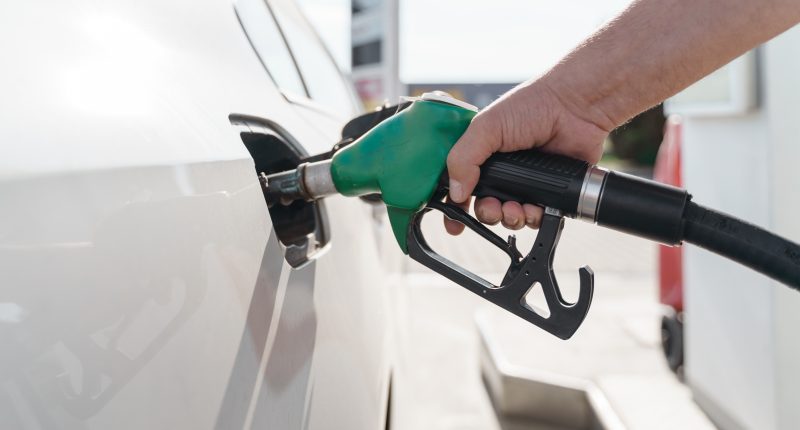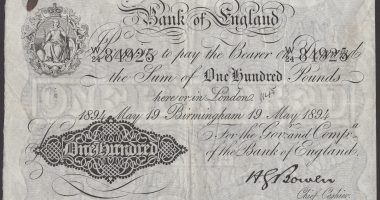MOTORISTS won’t be happy to see that prices at the petrol pumps are on the rise again.
Last year the cost of fuel hit record highs, hitting drivers hard in the pocket.
That was down to the conflict in Ukraine – Russia is one of the biggest oil producers.
Thankfully diesel and petrol prices have since fallen back, easing the burden on already hard-up budgets.
Prices have started inching up again in recent weeks – so should drivers be concerned?
We explain what’s going on with prices and what’s behind the increase.


Are petrol prices rising?
Average petrol prices went up for the second consecutive month in July, according to the RAC.
The organisation’s Fuel Watch, which monitors price changes of petrol and diesel, a litre of unleaded was 145p at the start of August.
That was up 2p from the start of June.
Diesel stayed the same at 146p per litre, marking the first time in eight months the price has not fallen.
Most read in Money
Separate data published weekly by the government shows that petrol was 149.1p a litre on average, on August 13.
That’s up by 4p just two weeks ago, and the highest it’s been since February this year.
Diesel is at 150.6p per litre on average this week, its highest since the end of May.
Drivers escaped a price hike earlier this year, as fuel duty was frozen for the 13th year in a row in the spring Budget – AND the 5p cut was kept.
It was a double win for The Sun’s Keep it Down campaign, after Chancellor Jeremy Hunt spared drivers a feared 12p rise – a combination of the end of the cut and an inflationary rise.
Why are petrol prices going up?
But what’s behind the rise?
Petrol prices usually go up when wholesale costs rise – and that’s the case recently.
The price of a barrel of oil went up by $10 in July, the RAC said.
That’s added 7p to the wholesale price of unleaded per litre, and 9.5p to diesel.
Oil prices are rising after two of the world’s biggest producers, Russia and Saudi Arabia slashed supplies.
When supply falls, wholesale prices go up.
Those prices are then passed onto the consumer buying at the pump.
What are experts saying about petrol prices rising?
RAC fuel spokesman Simon Williams said: “July marks a turning point in the year for fuel prices as diesel stopped falling while petrol recorded its second consecutive monthly increase.
“But more concerning is the fact that oil has gone back up to $85 a barrel, causing wholesale prices to rise significantly.
“While we’re fortunately not in the kind of upward price spiral we experienced last year, it feels like the better times at the pump are over for the time being.
“If oil producers continue to curb production then bigger forecourt price rises could be on the cards.”
“This has led to a squeeze on retailer margins which were too large, so we’re currently seeing a return to them making an amount per litre more similar to their longer-term averages.
What will happen to petrol prices?
It’s hard to predict what will happen to petrol prices, as there are many factors affecting global oil prices.
But the government has put pressure on petrol station bosses to stop treating hard-up drivers as “cash cows”.
Forecourt owners have been accused of failing to pass on previous falling wholesale prices to drivers.
The CMA found that average supermarket fuel margins rose by 6p per litre between 2019 and 2022 after it looked into concerns over profiteering on fuel.
That led to an estimated combined additional cost of “around £900million” for customers of Asda, Tesco, Sainsbury’s and Morrisons, a CMA report said.
As a result, supermarkets and retailers have agreed to back a fuel price checker to drive down prices for motorists.
Energy Secretary Grant Shapps has asked retailers to join the voluntary scheme in which daily forecourt prices are logged on a central database.
Watchdogs have given firms the go-ahead to publish prices, which can then be used by comparison sites and apps so drivers can easily find the cheapest fuel near them.
In the meantime, there are a number of ways motorists can keep driving costs down.


There are already sites you can use to help you find the cheapest petrol prices near you, like PetrolPrices.com and Confused.com.
There are several loyalty schemes you can use to save on fuel – we explain them all and how you can save 5p a litre.










